Cultural Bridges and Exchange
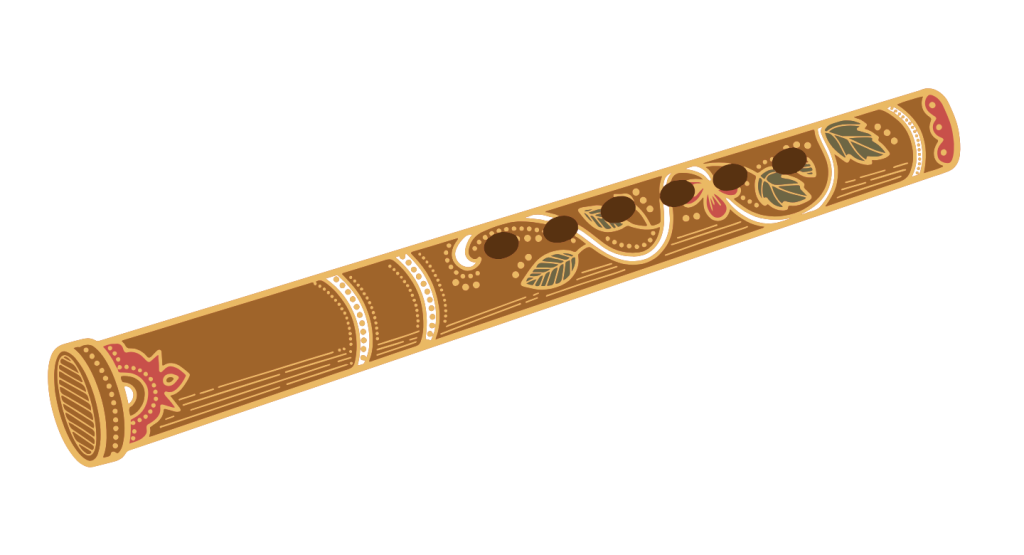
Culture Has the Power to Open Closed Minds
Darko Brlek
General and Artistic Director of the Ljubljana Festival
Darko Brlek
Slovenian Clarinetist and Music Manager
Born on December 8, 1964, in Ptuj.
In 1988, he graduated from the Academy of Music in Ljubljana, in the class of Mihael Gunzek, and continued his studies at the College of Music and Performing Arts in Graz.
During his studies, he received numerous awards, including the Prešeren Award from the University of Ljubljana, and later received the Betett and Župančič Awards for his artistic creation.
Between 1991 and 1992, he was the director of the Ljubljana Opera, and since 1992, he has been the artistic director and, since 1995, the director of the Ljubljana Festival.
Since 1997, he has served as the vice-president of the European Association of Festivals based in Brussels, which brings together more than 100 of the largest European festivals, and since 2005, he has been the president of the association.
He was one of the founders of the Slovenian Chamber of Culture and its first president. He was a member of the Council for Culture under the Government of the Republic of Slovenia, and since 1996 he has been a member of the ISPA (International Society for the Performing Arts) based in New York.
He is also one of the founders of the European House of Culture in Brussels.
Brlek also works regularly as a clarinettist, collaborates with various world orchestras.
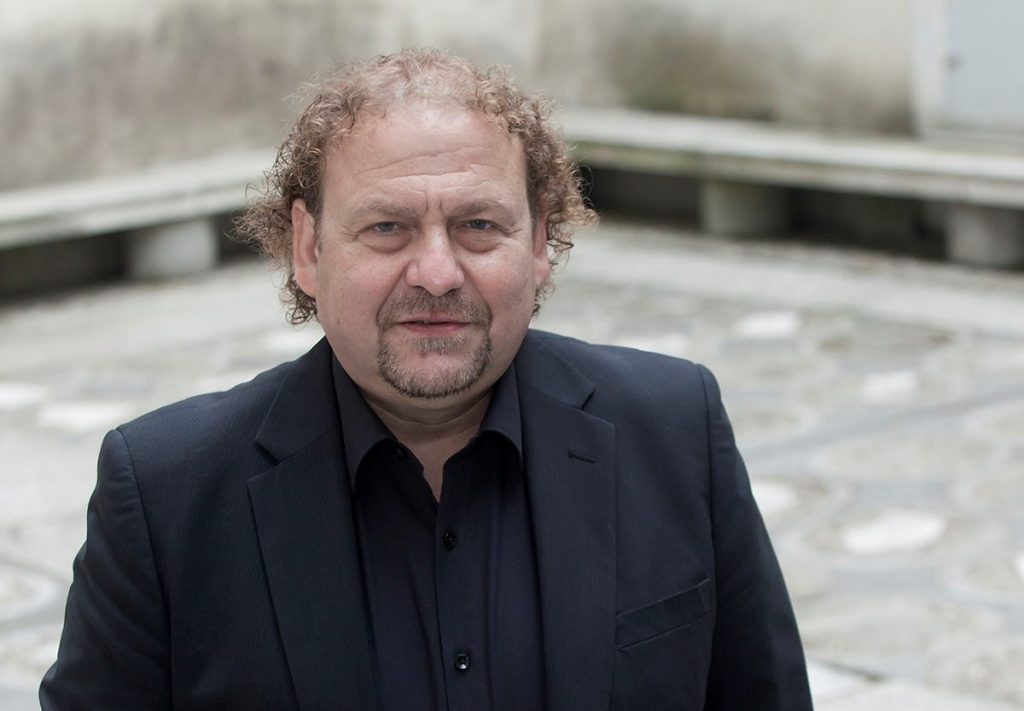
Click here to listen to the text
Ljubljana Festival is one of the oldest music festivals in Europe, founded in 1953 and it takes place for the 73rd time this summer.
In 1992, Darko Brlek became the youngest artistic director of Ljubljana Festival, taking over as executive director of the country’s most important cultural festival in 1995. Under his leadership performances by Chinese artists have increased. Till this year more than 2000 have performed at Ljubljana Festival. Brlek highlights that the amazing results with China were achieved through the Belt and Road Initiative, the partnership agreement that was signed with the New Silk Road Fashion Group in 2017.
Brlek, also artist himself, a concert clarinetist, performing regularly on stages around the world, says that art and culture should be a common language between everyone, even those coming from opposite sides.
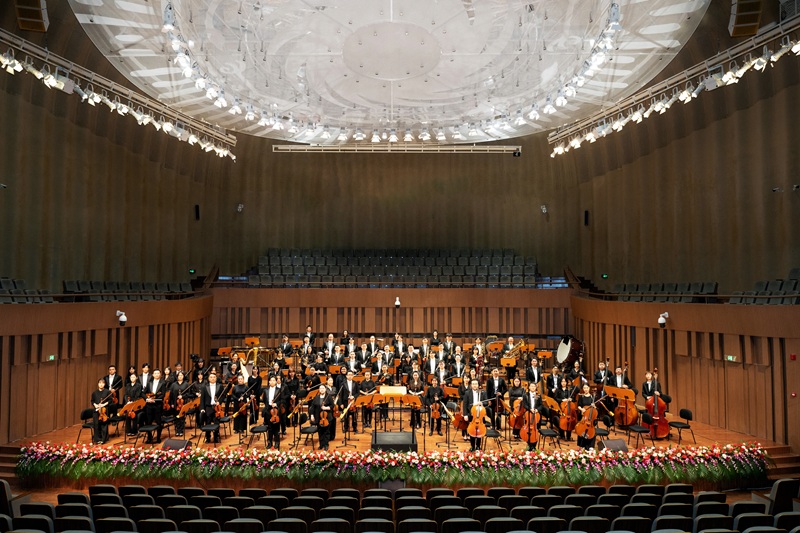
Mr. Brlek, you say that festivals are like litmus paper, by which you mean that when society changes, festivals change. What has changed recently and how did the cooperation with Chinese artists develop through time?
The pandemic has definitely affected the way we carried out our events in that time. It was necessary to comply with all regulations for safe implementation of events and logistically it was a challenge bringing some of the foreign artists to Slovenia. Despite that we successfully carried out all of our summer festivals and most of our other programmes, of which I am very proud. Now, the event organization is more or less back on track, but I believe that this time has showed, how important art really is and the people realised its value. It brings a sense of hope and inspiration even in the difficult times and I am overjoyed that our festivals are now even more visited than before the pandemic.
Apart from other international artists the Ljubljana Festival has been offering a platform for representation of Chinese artists in Europe since 1987, when the Sichuan Quingyin Ensemble performed with vocalist Cheng Yong. Performances by Chinese artists have further increased under my leadership. Till this year more than 2000 have performed at the festival. Among the artists, orchestras and institutions that introduced themselves to the Ljubljana Festival audience are China National Opera House from Beijing, Chinese Dance Theatre Lanzhou, Qingdao Symphony Orchestra, Shenzhen Symphony Orchestra, En Shao, Tan Dun, Daye Lin, Nie Jiapeng and Lang Lang. I am delighted that at our festival we can give a stage to outstanding artists who represent Chinese cultural excellency and craft.
This year we will be hosting the famous Guiyang Symphony Orchestra on August 25th , which I am particularly looking forward to.
In 2023, you were invited as guest of honour and speaker to the China SPAF Performing Arts Fair of the China Shanghai International Arts Festival. What were your experience like? What did you learn?
I felt very privileged that I was invited to the Opening Ceremony of China Shanghai International Arts Festival 2023, which was the first China SPAF in person gathering after the pandemic. Apart from that I was grateful to be the honourable speaker at today’s roundtable, celebrating the tenth anniversary of the Belt and Road Initiative. In 2024 I was invited to attend the China SPAF as well. Both years, I had the opportunity to see all the amazing results we achieved through the Belt and Road Initiative (a partnership agreement was signed with the New Silk Road Fashion Group in 2017). Since its inception the network has grown and offered a series of programmes encouraging collaboration and discussions about art exchanges and development among the member organisations through China Shanghai International Arts Festival. The latter has served as a platform for the advancement of trade in the performing arts among all countries since its foundation in 1999. Like the Ljubljana Festival does in Slovenia, the Shanghai Festival brings together artists who are the greatest in their field no matter their origin, and is one of the main international stages for the contemporary arts scene. The festival represents an important foundation for the promotion of global exchanges and mutual cooperation between China and other participating countries.
This year Ljubljana Festival has been chosen as the winner in the Best of Culture by internationally recognised guide book publisher In Your Pocket City Guides. How does it feel to be the most appreciated and recognised creators of cultural life in the city? What do you plan for the future?
I am absolutely thrilled about this award, particularly because it is voted for by the public. It means a lot that the people are satisfied with the events we are organizing for them and that they appreciate the hard work that is behind every festival. This award gives me and my co-workers confirmation that we are doing something that resonates with our visitors and it is further motivation for future development and keeping the highest standards at all our events.
This year’s 73rd Ljubljana Festival, since the opening on June 20th, has been truly amazing and there is a lot more exclusive program until September 12th. The list of performers is long but I will just mention some of them: La Fura dels Baus, ADDA Simfònica Alicante, Orchestra dell’Accademia Nazionale di Santa Cecilia, Monte-Carlo Philharmonic Orchestra and Wiener Philharmoniker.
The orchestras are conducted by world-renowned maestros like Charles Dutoit, Daniel Harding, Franz Welser-Möst and Kakhi Solomonishvili.
We brought the original production of The Phantom of the Opera to Ljubljana. There are musicals such as Les Misérables and The Threepenny Opera which are the part of the programme as well. Film music by Ennio Morricone was conducted by his son Andrea Morricone, ballet enthusiasts were able to see Edward Clug’s most famous choreographies and Svetlana Zakharova’s ballet and music evening, which she designed with her husband Vadim Repin. Also returning to the Ljubljana Festival are the opera diva Anna Netrebko, violin virtuoso Maxim Vengerov and the legendary Martha Argerich.
What is your personal vision of the future? What is the role of art and culture in the society?
Art and culture should be a common language between everyone, even those coming from opposite sides. For example, festivals unite people from different backgrounds on stage and in the audience. Through that the festivals prove that creating and coexisting in harmony is an attainable goal. I am proud that we can carry out this message at the Ljubljana Festival with all our activities. My wish for the future would be to break down ideological barriers, and that the arts and culture serve as an example and inspiration for a wider society.
text by: Tonja Blatnik
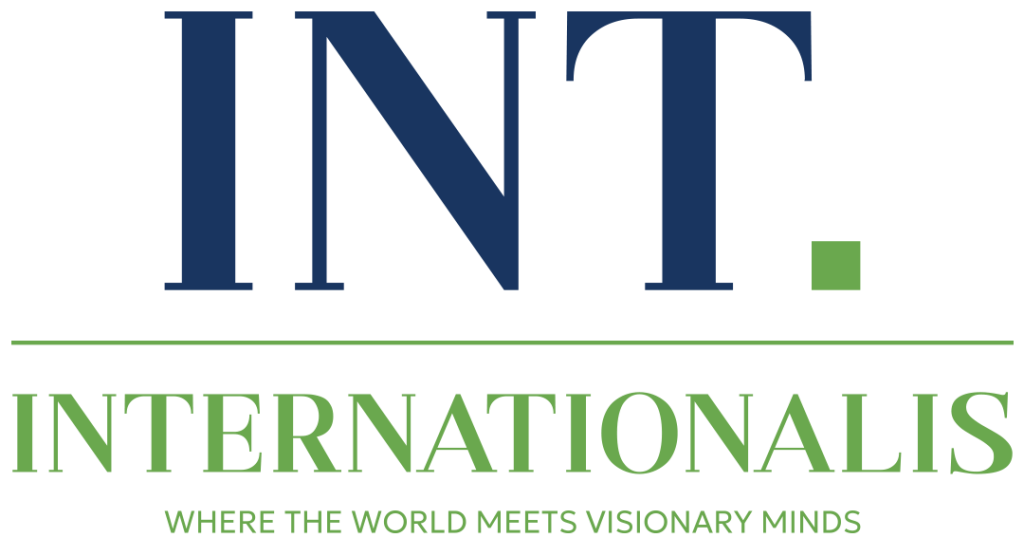
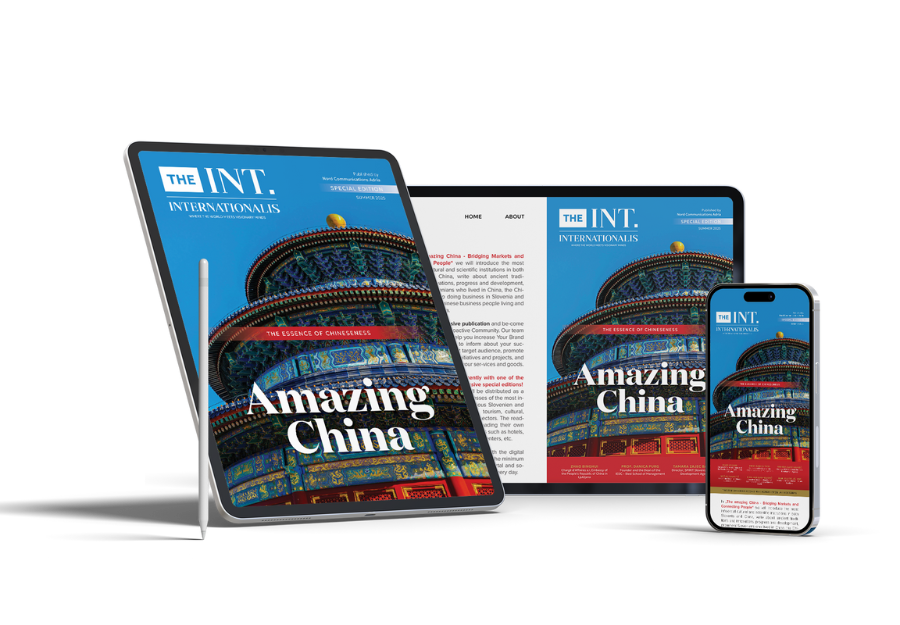
Get news before anyone else!
This audio recording was generated using AI technology. While every effort has been made to ensure clarity and accuracy, please note that the pronunciation of non-English words—particularly Chinese—may not always be correct. We appreciate your understanding and acknowledge that any mispronunciations are unintentional. Internationalis Media is not responsible for potential inaccuracies in AI-generated speech.